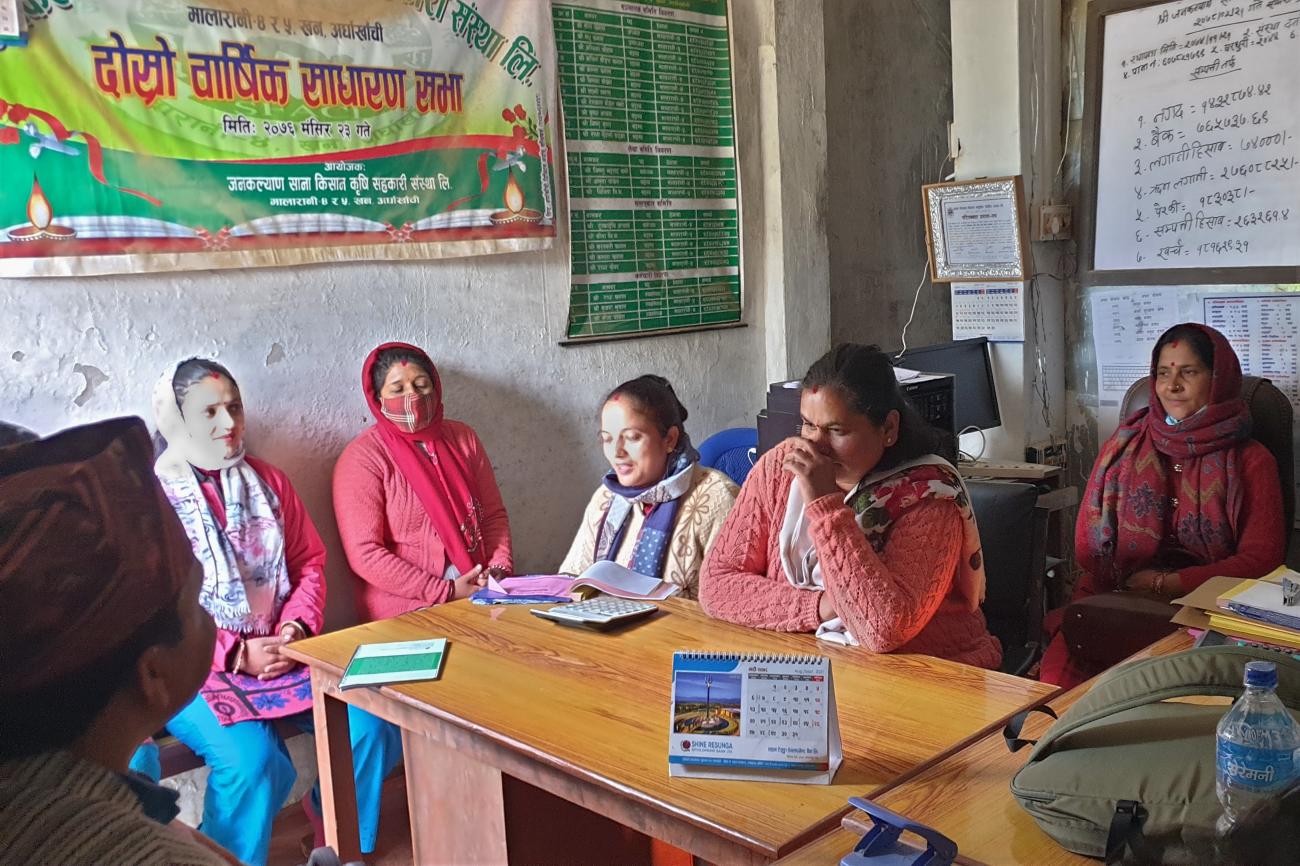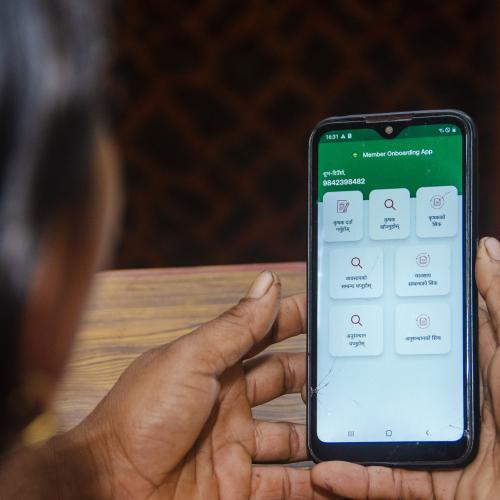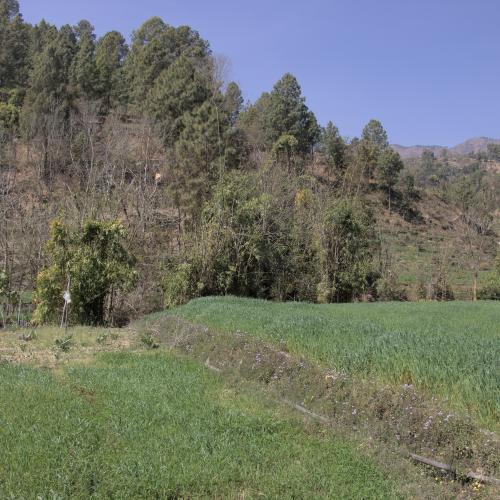Co-producing a shock resilient business ecosystem for women-led enterprises in Nepal

Context
The Covid-19 pandemic disproportionately affected women in Nepal and worsened existing vulnerabilities induced by climate change. It severely impacted the socio-economic capabilities of women already at the forefront of bearing the brunt of climate change.
Women entrepreneurs and women engaged enterprises in the agriculture and agroforestry sectors also bore the double burden of Covid-19 and climate change. Reports suggest that over 41% of women lost their jobs during the pandemic compared to only 28% of men, 15% of women-led businesses have collapsed, and women-led micro- small- and medium- enterprises experienced severe impacts in Nepal.
Women struggle to access to credit from financial institutions due to the lack of required collateral and onerous documentation requirements. Moreover, the government’s economic recovery plans seldom reach women engaged in agriculture and small-scale enterprises.
Objectives
This project intends to create a gender-responsive entrepreneurial ecosystem that supports women’s economic empowerment. It plans to take advantage of the rising use of digital technology and align interventions to Nepal’s Nationally Determined Contributions (NDC), which prioritises agroforestry practices with a low-carbon footprint, gender-inclusive policies, an inclusive economy, healthy agricultural landscapes and increased access to climate-smart agricultural technologies.
The project adopts a participatory action research approach, which begins with identifying the gender-based constraints (GBC) at various nodes of agriculture and forest product value chains. The appropriate policy, social, institutional, technological and technical solutions are then introduced to address the GBCs. Finally, the insights generated from these interventions will be fed into the respective policies, institutional mechanisms and practices, as appropriate.
The project employs an intersectional approach and envisions an ‘ecosystem for support’ model, which involves identifying challenges, opportunities and actions, including policy advocacy (for new policies, or necessary revisions or for implementation of existing ones), with women-farmers/producers, women entrepreneurs, women-engaged cooperatives and other enterprises, researchers, financial institutions, private sector actors and respective government service providing agencies. It is envisioned that the processes of co-production and deliberative dialogues will strengthen women’s voice, self-confidence and meaningful participation in making choices to move higher along the value chain of the enterprises they are engaged in.
Partners
The project is led by the Southasia Institute for Advanced Studies (SIAS). The collaborating partners bring their expertise, network and experience on digitech and marketing (Aria Solutions), academics, capacity building and diagnostic research (NIMS College), and international trade (Himalayan Bio-Tech Pvt. Ltd.).
Activities
The project has four work packages:
- Diagnostic research and analysis to understand GBCs in agriculture and forestry value chains;
- Technical, digitech, fintech and institutional interventions to address the GBCs;
- Women’s capacity building and voice; and
- Knowledge production and dissemination.
Baseline research, value-chain analysis, policy analysis and a literature review will help identify the issues for action research and stakeholder deliberation. The project’s key areas of intervention include identifying women champions and mentoring them, facilitating farmers field schools, developing linkages with financial institutions and women-friendly digital solutions, the branding of agricultural products and reforming governance of cooperatives and women-engaged enterprises.
Contact
Dr Mani Ram Banjade, Principal Investigator
Southasia Institute of Advanced Studies (SIAS)
maniram@sias-southasia.org




